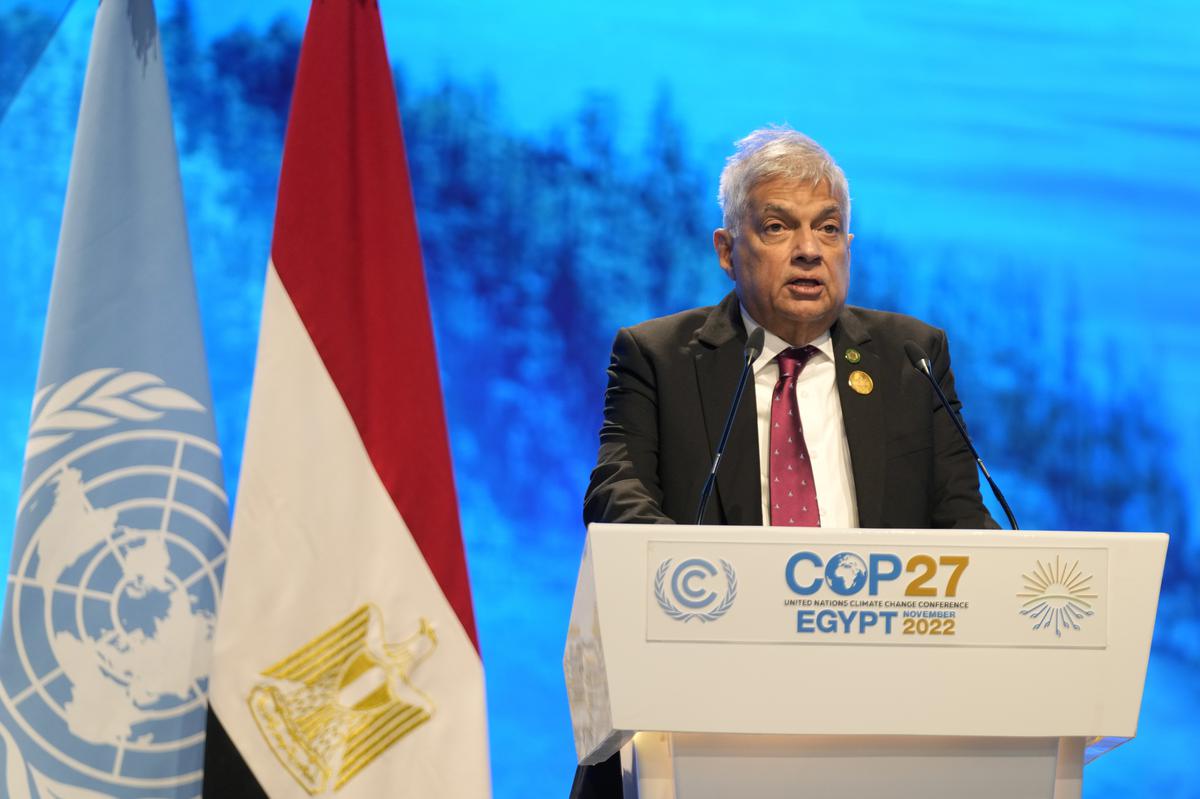
Ranil Wickremesinghe proposes setting up International Climate Change University
The Hindu
Sri Lankan President criticises developed nations for reneging on their climate financing contributions
Pointing to the “lack of” capacity as the “biggest obstacle” to the implementation of climate action plans, Sri Lankan President Ranil Wickremesinghe on Tuesday proposed setting up an International Climate Change University in Sri Lanka, with an ancillary institution in the Maldives.
As island nations, Sri Lanka and the Maldives are particularly vulnerable to the adverse impact of climate change, experts have repeatedly warned. “This seat of learning can be a trans-disciplinary global centre for green and blue studies – for scientists, environmentalists, researchers, policymakers, development practitioners, and…students the world over,” Mr. Wickremesinghe said, addressing the COP-27 Climate Change Conference in Sharm El Sheikh, Egypt.
The Sri Lankan leader blamed “unbridled industrialisation of developed countries” as the root cause of climate change, leaving the poor to suffer the consequences. Appealing on behalf of the Global South, he said poor countries were facing “a double jeopardy” - struggling to develop economically, while fighting to protect the living standards of their people. “It is therefore imperative that the developed countries deliver on their pledge in Glasgow – by doubling their funding...Developing countries who are the worst affected by the rise in emissions from the industrialised world, need to be compensated for loss and damage.”
In the Glasgow Climate Pact of 2021, developed nations were urged to at least double their collective provision of adaptation finance by 2025. “It is no secret that climate financing has missed the target. It is ironic that the 100 billion dollars pledged annually, have not been available in the coffers to finance climate challenges – as many developed nations deem it fit to renege on their climate financing contributions,” President Wickremesinghe said.
Further, he said countries on both sides of the Ukraine war had “no qualms spending for a war which will finally exceed $350 billion”. He termed it a conflict waged “purportedly for security interests of the combatants.” The only security at stake, he said, was that concerning food, with food insecurity worsening to levels “not experienced before the war”. “Many living both in the developed and developing world are outside the scope of three meals a day,” Mr. Wickremesinghe added.

U.S. President Donald Trump threatens 200% tariff on wine, champagne from France, other EU countries
Trump threatens 200% tariffs on European alcohol in response to EU levies, sparking trade tensions and market uncertainty.












